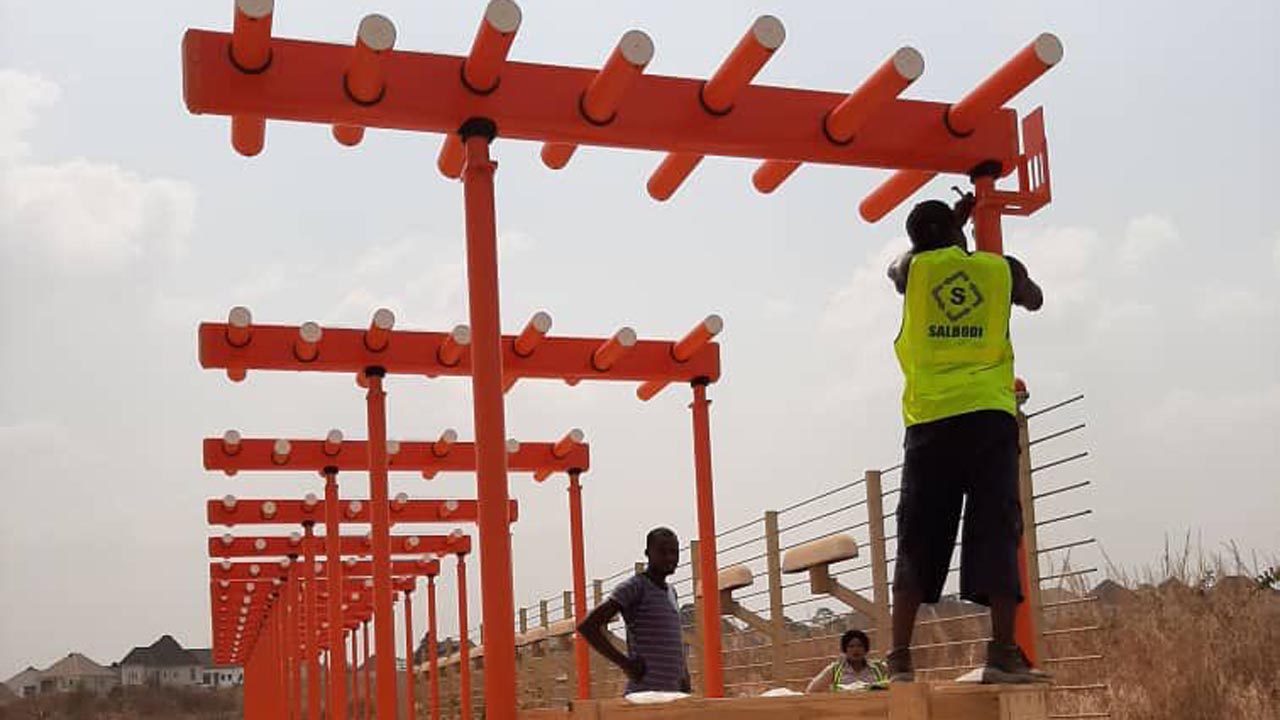[dailymotion code=”k9rtZUQ6webFzJvOBcE” autoplay=”yes”]
A week-long of flight disruption in both local and international operations nationwide has cost the airlines losses in excess of billions of naira.
Though the normal schedule services had since resumed as at yesterday, all the airlines and ancillary service providers were still counting their losses on account of delayed or cancelled schedules, multiple flights diverted, and alternative support services to stranded passengers, among others that came at extra cost to the operators.
For about four days on the bounce last week, air travel was grounded to a halt as harmattan hazy blurred air-to-ground visibility at airports nationwide. While aircraft were delayed on the ramp for hours, stuck passengers grew uneasy throwing various domestic terminals into chaos.
The international travellers were not left out, especially in Lagos, as in-bound flight still had to divert to Accra, Lome and Abuja airports over sub-optimal Instrument Landing Systems (ILSs) at the Murtala Muhammed International Airport (MMIA).
Airlines like British Airways, Delta Air, and Etihad have had to choose between Kotoka International Airport in Accra or Gnassingbé Eyadéma International Airport, Lomé, the capital of Togo. Ethiopian Airlines, Emirates, Qatar Airways simply diverted Lagos traffic to Nnamdi Azikiwe International Airport, Abuja.
The Minister of Aviation, Hadi Sirika, and the Nigerian Civil Aviation Authority (NCAA) apologised to the travelling public to bear with the airlines, as the authorities work round the clock to mitigate the effects of bad weather on safe flights.
An airport official of British Airways (BA) yesterday told The Guardian that the airline had resumed Lagos operations, and the operating aircraft was being expected in the evening.

“The weather is better now and the risk is much limited. Last week was very tough for all of us and our customers. We may not be able to say how much was lost for now, but it is huge. Most painful is the passengers that were stranded in Ghana and had to be airlifted by a chartered flight. We can only hope that we have seen the end of it all,” the source said.
Secretary-General of the Aviation Safety Round Table Initiative (ASRTI), Group Capt. John Ojikutu (rtd), said the avoidable losses could not but be overwhelming for the airlines, and also complimentary service providers.
Ojikutu said: “First, imagine the average number of flights per day the airlines, both national and international, a process in good weather and how many they are doing now. Try to do so with the number of passengers, and you will imagine the losses. The service providers alone are losing an average of $1 million daily, these are the Federal Airport Authority of Nigeria (FAAN), National Airspace Management Agency (NAMA), handling companies, fuel marketers, catering and others.
“Imagine 30 international airlines carrying about 6,000 international outbound passengers daily, FAAN alone loses $300,000 every day; oil marketers sell about one million litres to international airlines, let’s say at $0.50/litre. That is $500,000; you can imagine that together, the handling companies and catering services, would share more than $200,000 on the services they provide for the 30 international airlines daily.
“Please, note that the $1 million does not include the losses on the domestic airlines and does not include charges on navigational and air traffic services. The FAAN’s $300,000 is derived from passengers’ airport service charge, which does not include aircraft landing and parking for the 30 international flights,” Ojikutu said.






